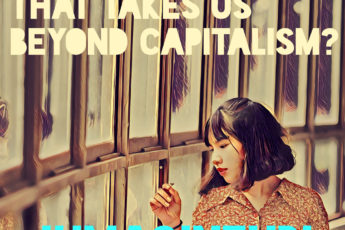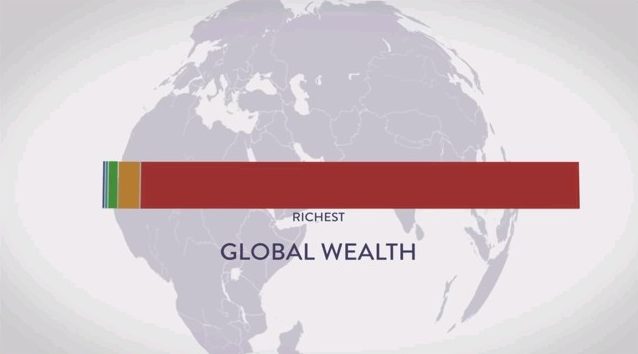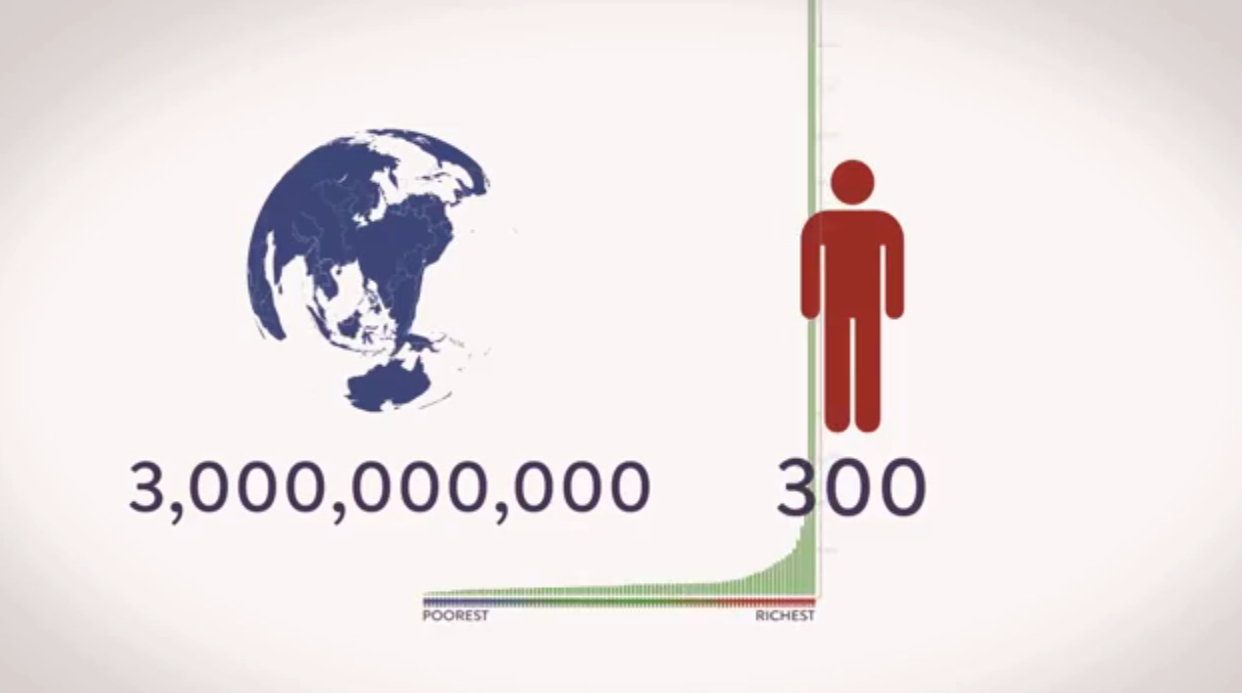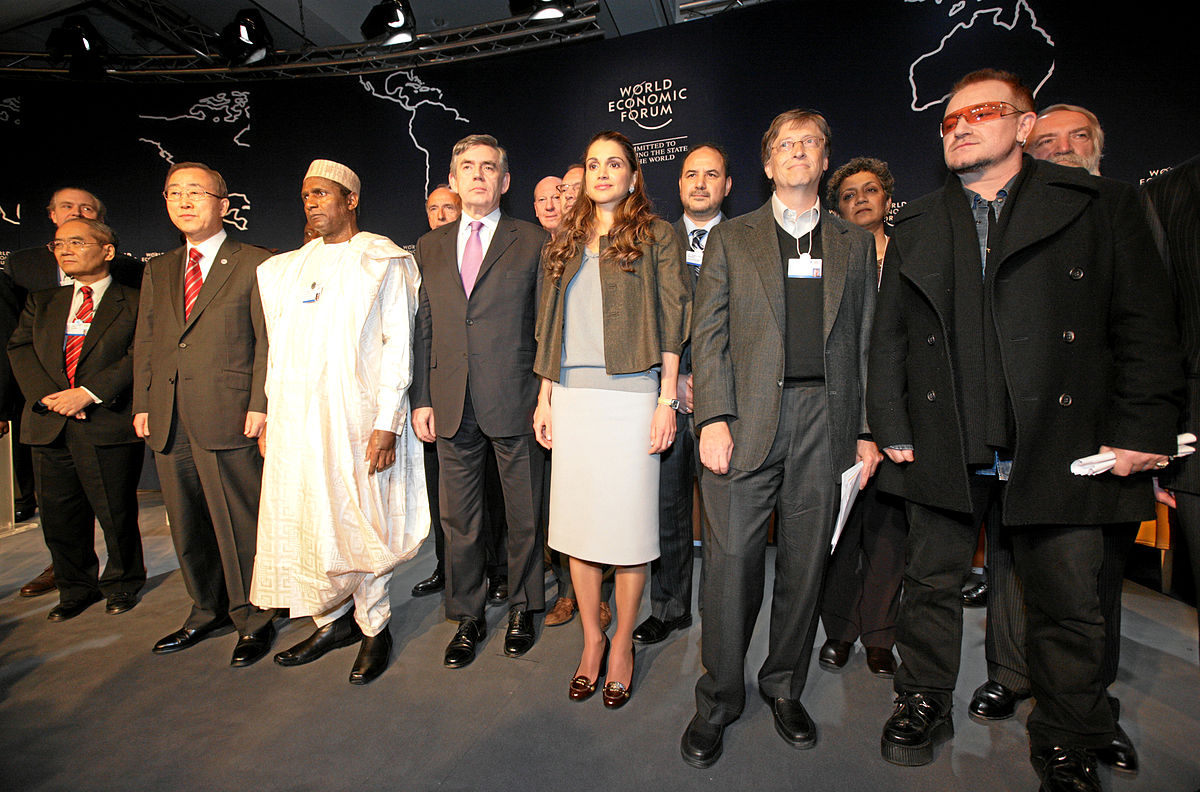
Every student learns about Magna Carta, the ancient scroll that enshrined the rights of barons against the arbitrary authority of England’s monarchs. But most have never heard of its arguably more important twin, the Charter of the Forest, issued two years later in 1217. This short but powerful document guaranteed the rights of commoners to common lands, which they could use for farming, grazing, water and wood. It gave official recognition to a right that humans nearly everywhere had long just presupposed: that no one should be debarred from the resources necessary for livelihood.
But this right – the right of habitation – came under brutal attack beginning in the 15th century, when wealthy nobles began fencing off common lands for their own profit. Over the next few centuries, the enclosure movement, as it came to be known, shifted tens of millions of acres into private hands, displacing much of the country’s population. Excluded from the basic means of survival, most were left with no choice but to sell themselves for wages for the first time.
And it wasn’t only England. The same process unfolded across Asia and Africa and most of the global south as European colonisers staked private claim to lands and forests and waterways that were previously held in common, leaving millions dispossessed. In much of the colonial world the goal, or at least the effect, was to drive people into the capitalist labour market, where, in exchange for low wages and poor conditions, they and their descendants would power the mines, plantations and sweatshops for export to the west.
As the era of colonialism came to an end, the governments of many newly independent nations sought to reverse these patterns of historical dispossession with land reform programmes. But they were quickly forced to abandon this approach by big foreign landowners and international creditors. Instead, the new plan for eradicating poverty – the dream of development – came to hinge on drawing people ever deeper into the labour market. Jobs came to be hailed as the salvation of the poor: as the World Bank puts it, “jobs are the surest pathway out of poverty”.
But now this promise is beginning to look hollow. With the rise of robots, robust employment is no longer a realistic hope. We know that automation is a real threat to jobs in the global north, but the threat is much worse in the south. The main industries there, such as small electronics and textile manufacturing, are some of the easiest to automate. According to a United Nations report, up to two-thirds of jobs in developing countries could disappear in the near future.
This is all bitterly painful, particularly for the postcolonial world. First they were dispossessed of their land and promised jobs instead. Now they will be dispossessed of their jobs, and many will be left with literally no way to survive. Their dispossession will be absolute. Technological unemployment will almost certainly reverse the modest gains against poverty that have been made over the past few decades, and hunger will likely rise.
Governments are scrambling to respond, and they don’t have many options. But one stands out as by far the most promising: a universal basic income.
Once a fringe idea, basic income is now speeding its way into the public imagination. Finland is running a two-year experiment in basic income. Utrecht in the Netherlands is conducting a trial, too. Y Combinator is trying it out in Oakland in the US. Scotland looks likely to follow suit. And cash transfer programmes have already proven to be successful in Namibia, India and dozens of other developing countries, sparking what some scholars have billed as “a development revolution from the global south”. In Brazil, to cite just one example, cash transfers helped to cut poverty rates in half in less than a decade.
But the success of basic income – in both the north and the south – all depends on how we frame it. Will it be cast as a form of charity by the rich? Or will it be cast as a right for all?
Thomas Paine was among the first to argue that a basic income should be introduced as a kind of compensation for dispossession. In his brilliant 1797 pamphlet Agrarian Justice, he pointed out that “the earth, in its natural, uncultivated state was, and ever would have continued to be, the common property of the human race”. It was unfair that a few should enclose it for their own benefit, leaving the vast majority without their rightful inheritance. As far as Paine was concerned, this violated the most basic principles of justice.
Knowing that land reform would be politically impossible (for it would “derange any present possessors”), Paine proposed that those with property should pay a “ground rent” – a small tax on the yields of their land – into a fund that would then be distributed to everyone as unconditional basic income. For Paine, this would be a right: “justice, not charity”. It was a powerful idea, and it gained traction in the 19th century when American philosopher Henry George proposed a “land value tax” that would fund an annual dividend for every citizen.
The beauty of this approach is that it functions as a kind of de-enclosure. It’s like bringing back the ancient Charter of the Forest and the right of access to the commons. It restores the right to livelihood – the right of habitation.
Critics of basic income often get hung up on how to fund it. But once we come to see it as linked to the commons, that problem becomes more tractable. In the US state of Alaska natural resources are considered a commons, owned collectively by the people, so every resident receives an annual dividend from the state’s oil revenues.
The Alaska model is popular and effective, and scholars have pointed out that the same approach could be applied to other natural resources, such as forests and fisheries. It could even be applied to the air, with a carbon tax whose yields would be distributed as a dividend to all. And the upshot is that this approach helps protect commons against overuse, giving our planet some room to regenerate.
Implementing this idea will require political will – but it is far from impossible. In fact, some research indicates that it might be politically easier to implement than other social policies. Even in the US, leading policymakers – including former treasury secretary Henry Paulson and two former Republican secretaries of state – have just put forward a carbon tax and dividend proposal. The idea of a basic income also has broad and growing support from high-profile figures including Elon Musk and Bernie Sanders.
There are risks, of course. Some worry that a basic income will only increase the nativism that is spreading across the world right now. Who will qualify for the transfers? People won’t want to share with immigrants.
It’s a valid concern. But one way to address it is to think in more universal terms. The earth’s natural bounty belongs to all, as Paine pointed out. If the commons know no borders, why should a commons-linked income? Indeed, why should people in resource-rich nations get more than their neighbours in resource-poor ones? A tax on resources and carbon around the world could go into a global fund, in trust for every human. Dividends could be set at $5 per day – the minimum necessary for basic nutrition – corrected for each nation’s purchasing power. Or we could set it at each nation’s poverty line, or some ratio thereof. Scholars are already thinking about how such a system could be designed.
We already know, from existing experiments, that a basic income can yield impressive results – reducing extreme poverty and inequality, stimulating local economies, and freeing people from having to accept slave-like working conditions simply in order to stay alive. If implemented more broadly, it might help eliminate “bullshit jobs” and slash unnecessary production, granting much-needed relief to the planet. We would still work, of course, but our work would be more likely to be useful and meaningful, while any miserable but necessary jobs, like cleaning the streets, would pay more to attract willing workers, making menial work more dignified.
But perhaps most importantly of all, a basic income might defeat the scarcity mindset that has seeped so deep into our culture, freeing us from the imperatives of competition and allowing us to be more open and generous people. If extended universally, across borders, it might help instil a sense of solidarity – that we’re all in this together, and all have an equal right to the planet. It might ease the anxieties that gave us Brexit and Trump, and take the wind out of the fascist tendencies rising elsewhere in nativism that is spreading across much of the world.
We’ll never know until we try. And try we must, or brace ourselves for a 21stcentury of almost certain misery.








The downside of UBI is that one no longer needs to get along with others to survive. Holding a job, starting a business (could be as simple as selling vegetables), even barter all requires you to be nice to people, form and maintain positive relationships. Free money basically disconnects this basic human imperative. Good luck with that.
One disadvantage of UBI is that social skills are no longer necessary. The ability to hold a job, launch a business (even if it’s as little as selling veggies), or simply barter depends on your ability to connect with and get along with others. All but eliminated by the availability of “free money,” this fundamental human need is effectively stifled. I wish you the best of success in doing so.